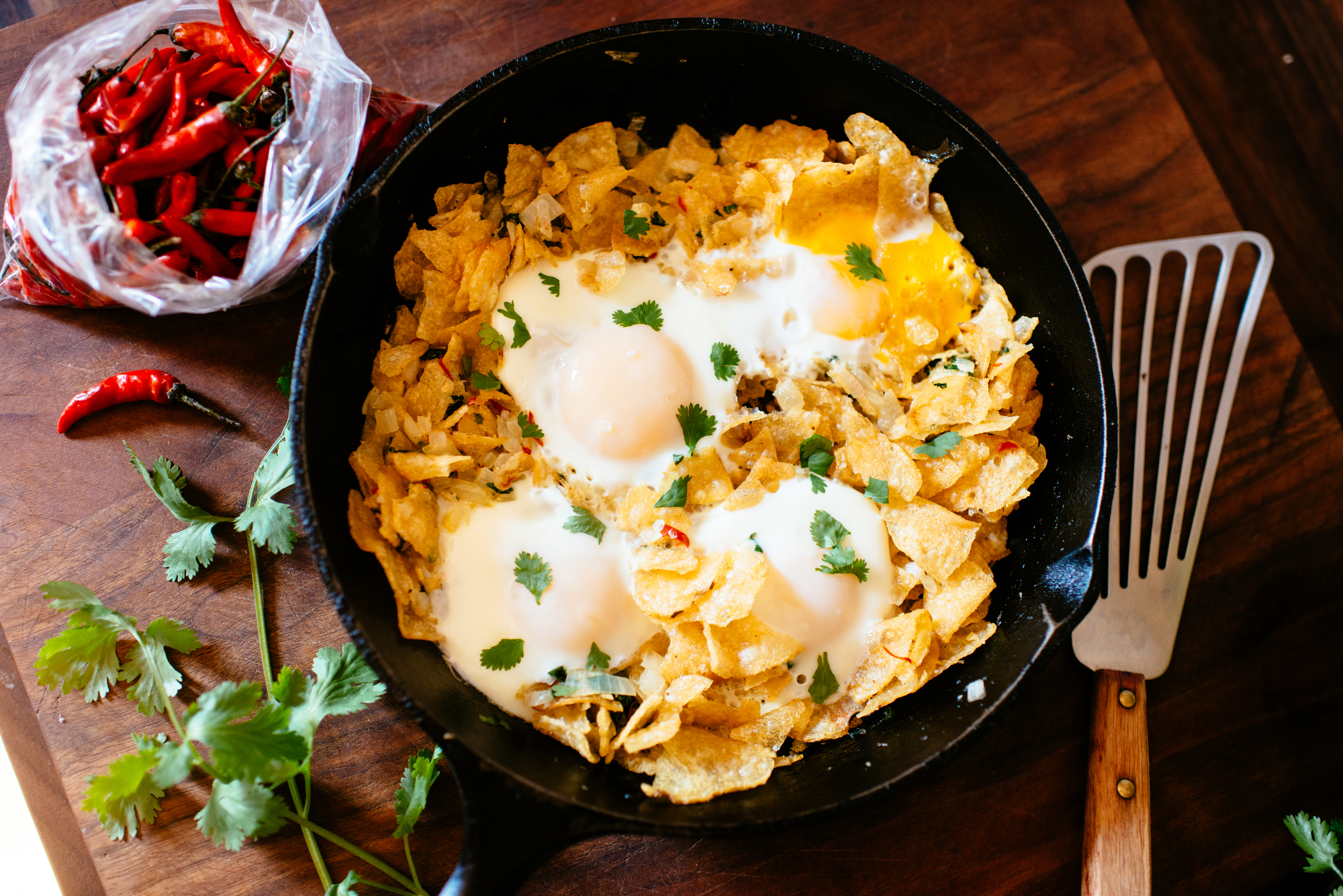This story originally appeared on TASTE.
In the restaurant and media worlds of northern California, where I worked during the 2000s, “simple” was ubiquitous. The finest compliment you could grant a dish was that it was simple. A simple tomato sauce on spaghetti. A simple roast chicken. A simple salad of garden lettuces with baked goat cheese. An entire region’s cuisine seemingly born of one word. Mid-to-late 20th century cookbooks that helped spawn the California cuisine movement, like Richard Olney’s Simple French Food, broadcast the adjective. Twenty-first century cookbooks, like 2007’s The Art of Simple French Food by the doyenne of Bay Area food, Alice Waters, trumpeted it.
The American Heritage Dictionary defines the word “simple” as follows: 1. Having or being composed of only one thing, element, or part. 2. Not involved or complicated; easy. 3. Being without additions or modifications; mere. 4. Having little or no ornamentation; not embellished or adorned. I will add an additional definition: 5. Makes Scott want to place a shotgun in his mouth and remove the back of his skull.
Everyone’s heart was honorable. You procured good ingredients from good farms and farmers and cooked good food. The heart can lie, though. Too often the cooking was slight, contrived in its sameness. A Californized version of country French and Italian cuisines that wielded simplicity like a cane. Restaurant kitchens feeding people by European groupthink. Who wants to eat only in restaurants what you could make at home?
A ray of light cracked through the haze the same year Waters’s book was published. In 2007, The Breakaway Cook appeared. It did the unthinkable: guided the notion of simplicity down new paths. Its author, Eric Gower, lived and worked in Japan for more than 15 years before returning to San Francisco. During that time, he inadvertently built a new culinary lexicon, one that relied on big, powerful ingredients like miso, pomegranate molasses, citrus, habanero chiles, ginger, kaffir/makrut lime leaves, and matcha.
The two powerhouses of this condiment. 📷: Denny Culbert
One recipe from The Breakaway Cook upended my ideas of cooking: matcha poached eggs. So effortless that it makes simple seem ornate. You combine matcha and coarse salt, then dust it on poached eggs that have been laid on buttered toast. We all know the combination of salt and eggs is mighty tasty. The addition of powdered green tea is alchemical. The egg’s savoriness intensifies. A delicate sweetness murmurs. I do not understand how a subtle addition does this. I no longer wonder. I merely eat the reawakened staple and marvel.
Gower now runs a matcha-fueled company called, predictably, Breakaway Matcha. It sells high-grade matcha, served at some of the Bay Area’s best restaurants, along with ceramics and other matcha-related implements. Me, I am in New Orleans, still starting my mornings with his revelatory eggs 11 years later.
Breakfast will ever be the same. 📷: Denny Culbert
Poached Eggs With Matcha Salt
Serves 2
Adapted from Eric Gower’s The Breakaway Cook
This recipe is so bare-bones, you could skip making the matcha salt and instead sprinkle both flaky salt and matcha over the eggs. Careful, though! You might find a matcha landslide careens onto your eggs if you’re not judicious.
¼ cup sel gris (gray salt) or other coarse salt
1 teaspoon matcha
2 slices of bread
2 eggs
Butter
Stir the salt and matcha together in a small container until the salt is fully green. This mixture will last for ages, so best to mix it together in a jar or some such container in which you can store it.
Toast and butter the bread. Do this first so you don’t have to worry about it while the eggs are poaching.
Poach the eggs in your favorite manner. Mine is to bring a small saucepan about ⅔ full of water to a simmer over the lowest possible heat. If you want to lessen the chances of straggly egg whites, first crack each egg, one at a time, into a fine-mesh strainer, and scrape off any whites that pass through the strainer’s bottom. Then add the remaining egg to the saucepan, stirring gently so the egg doesn’t stick to the base of the pan. Repeat with the other egg. Each egg should cook for about 4 minutes, or until the whites are set.
Lift the finished eggs from the saucepan with a slotted spoon or spider strainer and onto a towel to blot moisture from the egg while it’s in the straining implement. Gently slip the eggs onto the buttered toast. Sprinkle the top of each egg with a bit of matcha salt. Eat!












